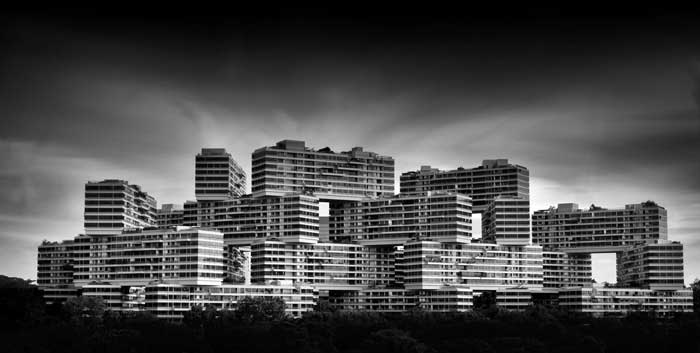Singapore is a top property investment market since 1990s. Singapore property investors have at least made three times the amount of capital outlay. Foreigners are curious as to their eligibility to purchase a property in built in Singapore. The answer is yes but it comes with more restriction compared to a citizen in Singapore. Two main investment categories available are residential property as well as commercial property. Within the residential segment and commercial segment itself there are sub categories and foreigners will only be able to invest in certain sub categories.
Residential property types in Singapore include HDB flats, Executive Condos, Private Apartment, Private Condo and Landed houses. Only Singaporean and PR holders can officially buy HDB houses which are subsidized housing schemes by the government. Foreigners have no ownership rights to HDB. Executive Condos are subsidized condo for Singaporean and PR. For PR holders, they can buy one after 5 years have passed from the completion of building, or commonly known as the Minimum Occupation Period (MOP). Foreigners are allowed to purchase one after 10 years. Private condos and apartments can be bought by foreigners, and there is no restriction on the number of units one can buy, just the average cost is around $2 million SGD so only for wealthy. For landed houses, foreigner keen on the houses must have government consent where owners have to prove that they contribute meaningfully to Singapore's economic development. There is a dedicated online portal for application.
For commercial properties, some of the sub categories include shop houses, office blocks and units, hotels, warehouses, factories, shopping malls and many others. Commercial property can also be freely bought and sold by foreigners. Leasehold property and freehold property are 2 only property tenures in Singapore. HDB as well as executive condos has a 99 year leasehold term. Private condos and apartment has 99, 999 years term or freehold. Leasehold property means Singapore government owns the land and property owners are leasing it back from the government for a small annual fee. The land is to be returned to government at the terminal lease period. Foreigners can own both freehold and leasehold properties.
Property taxes are additional cost added to the purchase price of Singapore property. These taxes include buyer's stamp duty, seller's stamp duty, annual property tax, income tax on rental and GST (goods and services tax). Buyer's stamp duty rates are 3% less SGD5400 for property price above SGD360,000 and additional buyer's stamp duty rates are 15%. Free trade agreements signed by Singapore and countries such as Iceland, Norway, Liechtenstein, USA and Switzerland will see the buyer exempted from additional buyer's stamp duty if the foreigner is a valid citizen or PR from the foreign countries mentioned.
There will be a seller's stamp duty tax imposed if sale of property is made within 4 full years from date of acquisition. The rate starts from 16% for sale occurring on the 5th year, with gradual decrease every following year. Annual property tax for residential property is dependent on the use of property. If a property is for private stay, tax rates ranges from 0 to 12% of annual property value. If a property is rented to outsiders, tax rates ranges from 10 to 12% of annual property value. Property tax rates for commercial properties are 10% of annual property value. Property annual value is derived from the gross annual rental rate for properties being rented out, excluding furnishings and furniture maintenance fees. Estimated market rental rates for comparable properties are used as comparison estimation. Rental income used to derive the Income tax rates on rental is net rental inflow after deducting directly attributable expenses ie interest on home loan, commission for real estate agent, maintenance fees, property tax and others. Foreigners are required to pay 20% net rental inflow tax rate, but will increase up to 22% beginning from YA 2017. GST in Singapore stands at 7% and payable to any commercial property buyers who are individuals.
Locals and foreigners alike have made huge capital gains and realized profits by property investment in Singapore but there are many who also lamented missed opportunities over the years. Singapore economy is expected to grow with gradual rising property market as better infrastructure are built such as new MRT lines and expressways. One must be brave to take the necessary action in view of the stable political scene in Singapore with very low unemployment rate.
Buying property can be summarized in few key steps. Firstly, perform a quick loan assessment on you own financial standing. Check out the mortgage markets and packages with a mortgage specialist. Proceed to discuss on desired property types and location with the property agents. Shortlist desired units and make arrangements for viewing. If you are satisfied with the price and conditions, proceed to pay a booking fee and arrange for loan and you will soon be accepting the keys to your first property purchase.

